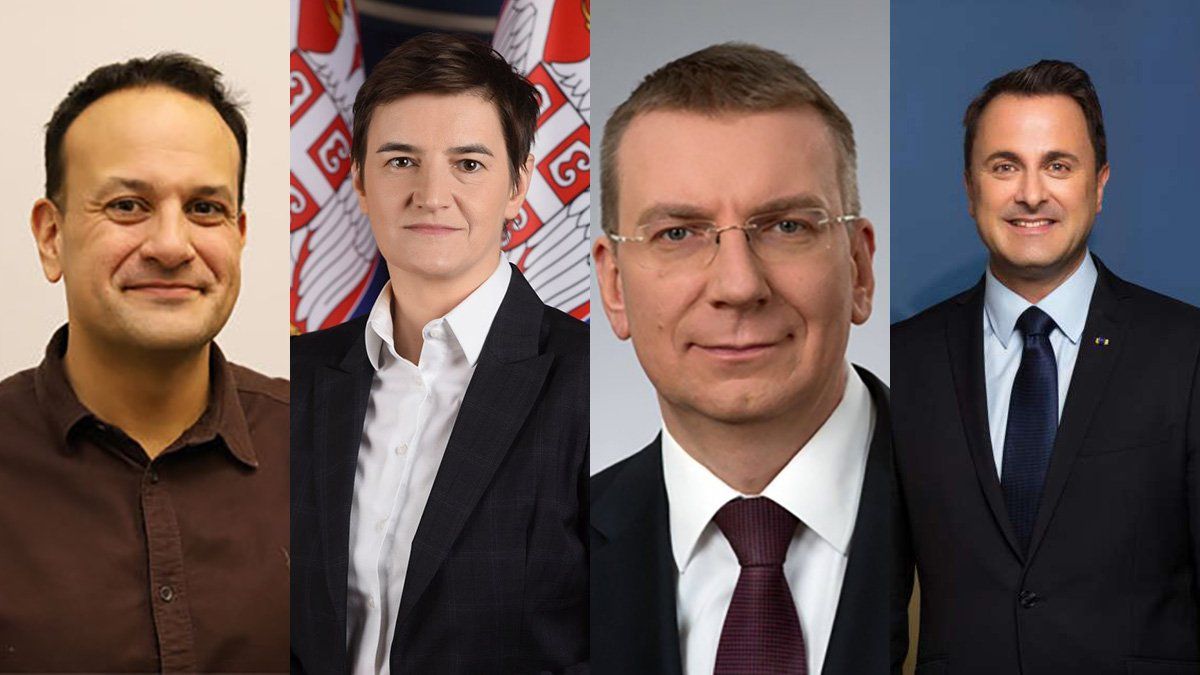As of June 2023, it's still rare for a head of government to be openly LGBTQ+. Here are the four leaders currently in office or elected to the top job.
Edgars Rinkēvičs
NATO
Edgars Rinkēvičs.
Country: Latvia
Position: President-elect
Edgars Rinkēvičs was the first government official to come out in Latvia, tweeting in 2014, "I proudly announce I am gay ... Good luck all of you." When he takes office in July, he will be the first openly gay president in the Baltic nations.
Xavier Bettel
Xavier Bettel
Country: Luxembourg
Position: Prime Minister
Xavier Bettel, Luxembourg's PM since 2013, has said, “Being gay is not a choice, but not accepting it is a choice. Homophobia is a choice, and we have to fight against it!” He married his civil partner in 2015, becoming the first serving leader in the European Union to wed someone of the same sex.
Leo Varadkar
Leo Varadkar
Country: Ireland
Position: Taoiseach (Prime Minister)
Leo Varadkar took office in June 2017, two years after he came out as gay prior to Ireland's referendum legalizing same-sex marriage. He is the first openly gay Irish PM. “I feel privileged to be gay in Ireland. We should not forget that only 30 of the 190 countries in the world have marriage equality. In 70 countries, it’s still criminalized,” says Varadkhar.
Ana Brnabić
Ana Brnabić
Country: Serbia
Position: Prime Minister
When Ana Brnabić took office in June 2017, she became not only Serbia's first gay prime minister but also its first female PM. “Serbia is changing and changing fast, and if you will, I am part of that change, but I do not want to be branded ‘Serbia’s gay PM’. The message we need to send is about competence, professionalism, and trustworthiness,” Brnabić said.
